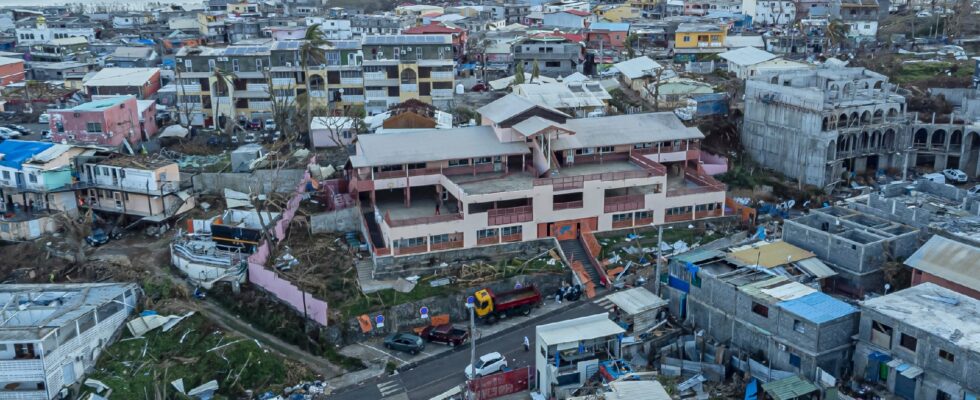When the metropolis discovers Mayotte
Eric Garnier, Villemomble (Seine-Saint-Denis)
I taught in Mayotte from 1980 to 1984 and I have returned every year for ten years to the island of my heart as well as to the neighboring Comoros, victims of an unworthy president. Since the passage of Cyclone Chido, the French people of mainland France have discovered this small archipelago, which has been treated shamefully for a long time. Outdated administration, complacent diplomacy towards the neighboring Comoros, where thousands of inhabitants, desperate by poverty, see hope in Mayotte. (“Mayotte: towards collapse?“, L’Express of December 19.)
French paradoxes
Claude Bertin, Brunoy (Essonne)
France organized magnificent Olympic Games, admired by the whole world; well done to the organizers! France, again to the admiration of the whole world, restored Notre-Dame de Paris, devastated by a fire, in record time; well done to the companions and workers! France has been without a budget for several weeks and is the laughing stock of the world. Why are our politicians not keeping up with our organizers and our restaurant owners? Average French people, of whom I am honored to be a part, are ashamed of their political class (“Olympic Games, Notre-Dame: what if the exemption became the norm?“, L’Express of December 5.)
The art of management
François Brégeon, Nemours (Seine-et-Marne)
Julia de Funès understood everything about how to lead. I myself managed teams within a large company where we were taught new methods. They often forgot the human relationship with its aspirations, its feelings, its listening, its encouragement, etc. In my opinion, management ability is innate and no diploma, however prestigious, guarantees that one will become a good manager. (“The kindness of a manager is worth a thousand management theories“, L’Express of December 5.)
The honor of manual labor
Pierre Guyomarch, Nantes (Loire-Atlantique)
I fully validate Julia de Funès’ article denouncing the disdain for manual labor. As a technical teacher of the building trades, I remember the observations of my colleges proudly recalling that they had done advanced maths. On the other hand, they had no concept of manual activity and were not concerned about the future of the young people entrusted to them. To change these mentalities, competitions must be eliminated and students must be placed in front of students with industrial experience. (“The four management lessons from the Notre-Dame construction site“, L’Express of December 19.)
No to studying in English!
Philippe Prinet, Lille (North)
I read Laurent Champaney’s interview with interest and I would like to react to this sentence: “At a time when we are suffering from a glaring lack of graduates in many sectors, wanting to reduce the number of foreign students in France, especially in our Grandes Écoles, is a mistake.” I am open to the presence of foreign students in France, but I met an Indian student in Lille living in a shared apartment with two of his compatriots. As I was surprised that he didn’t speak a word of French, he explained to me that he was taking classes exclusively in English! Here is a young person who will have difficulty finding his place in France because although English is a working language, few French people speak it fluently. So, foreign students, yes! English monopoly, no! (Special Education notebookL’Express of December 12, 2024.)
What Africans expect from France
Antoine Gelous, Chatou (Yvelines)
Africans do not want less commitment, but more. The response to the African malaise was not the disengagement of France, but on the contrary the strengthening of military cooperation with the clearly stated objective of supporting the regimes in place. Emmanuel Macron did not understand it, Russia will take care of it. (“The endless end of France’s reign in Africa”L’Express of December 5.)
The diplomatic press prize awarded to Cyril Pluyette
The 2024 diplomatic press prize was awarded on December 11 to Cyrille Pluyette, deputy editor-in-chief of the World service of L’Express, for his exclusive report carried out within the Taiwanese army, threatened by a possible Chinese invasion. Awarded each year, this prize crowns “the best coverage of international political subjects (articles of insight or analysis, investigations or reports) produced by a journalist holding a professional press card”, explains the Press Association French diplomat, who praised the work “shedding light on a major political issue”. You can find this article, published on June 27 and entitled “If Xi Jinping decided to attack…: Would Taiwan resist a Chinese invasion?“ on Lexpress.fr.
